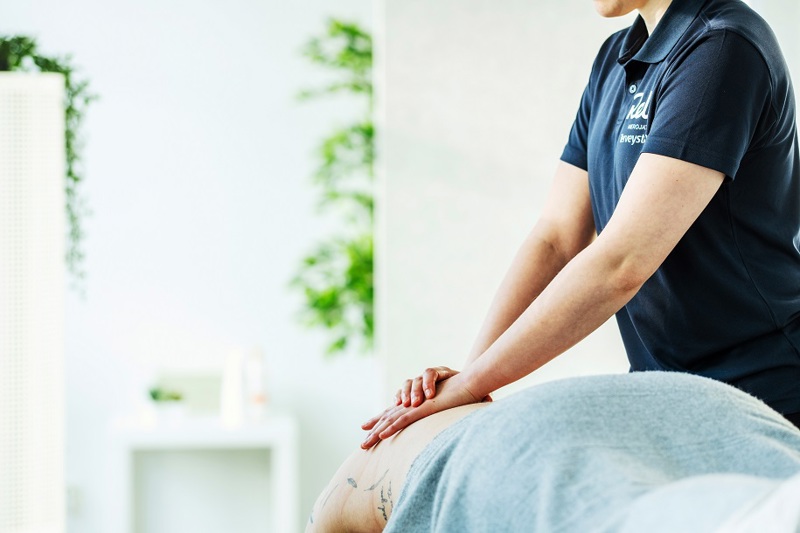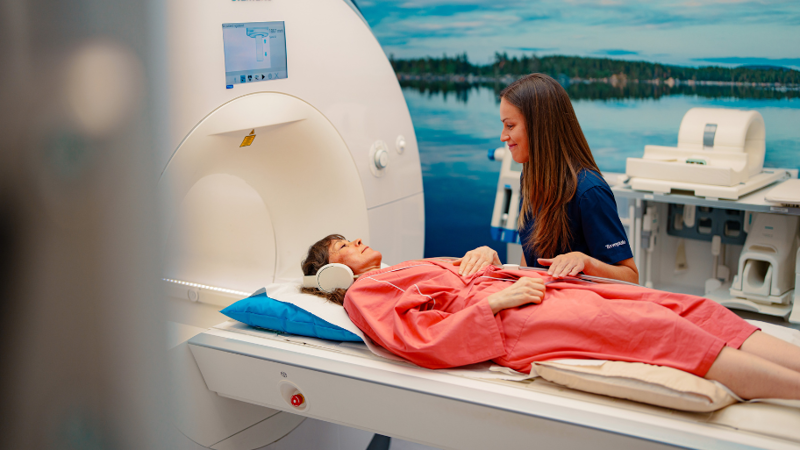How to strengthen mental well-being when the future feels uncertain?
The prolonged uncertain global situation is reflected in a rise in anxiety, says Tuija Turunen, senior psychologist at Terveystalo. Now is the time for everyone to take extra good care of their mental health. This can be done by taking breaks, developing emotional and stress regulation skills and listening to stories.

More and more people are turning to mental health services and helplines for help with their anxiety. Fortunately, says Tuija Turunen.
"With the pandemic, the mental health burden is also on those who have not had it before and are not at risk. The uncertainty of the global situation affects us all. On the other hand, contacting Terveystalo's mental health services and Mieli ry's helpline means that people know how to seek help and that they are not left alone".
It's time to take care of your own mental wellbeing. News of war and crisis travels everywhere on mobile phones. But you don't necessarily need to be aware of it all the time," says Turunen.
"The flow of news is addictive and it's easy to feel that you need to be aware of what's happening all the time. One way to manage your own exposure is to look at your media use. How much do you use and why? Could there be times of the day when you don't follow the news feed?
Take an interest in your own wellbeing
Now is also the time to build your resilience - your mental ability to adapt, adjust and recover. Resilience is not stubbornness, it's the opposite of stubbornness. Resilience is strengthened when you take an interest in your own wellbeing and see the good and the bad as a sign that you have come through a difficult period.
"It is important for mental wellbeing to recognise and accept your feelings and not to ask the impossible of yourself. If you are interested in yourself, you can be interested in others".
Like physical stamina, mental stamina requires recovery. That's why it's worth building breaks and moments of recovery into your day.
"In other words, life shouldn't be all about performance."
Resilience is not stubborn guts, it's actually the opposite. “
Find effective ways to regulate stress
In your own wellbeing, it's worth watching for signs of being stressed, under-stressed or anxious. These signs vary from person to person, but can include irritability, memory and concentration problems, headaches, stomach aches and sleep problems.
"You shouldn't even try to get used to or numb yourself to these feelings. If you notice the signs, you should use the stress management and emotional skills you have learned to use. The range is endless and you can learn new ones all the time, for example by discussing them with others."
For many people, getting out into nature, exercising, meeting friends, reading, singing or even dancing have proven to be effective ways and skills. If you are feeling anxious and distressed, you can try exercises such as breathing techniques, mindful distraction and writing down what is bothering you.
"Different methods work for different life situations. Sometimes you need a sweat walk, sometimes yoga. Sometimes the company of friends helps, and sometimes it's good to be alone. You have to listen to yourself, because only you know what works.
Stories, narratives and memories of what has helped in the past also help build resilience.
"For example, stories of grandparents and evacuees are now closer to us, as are memories of the energy crisis in the 1970s. They are now interesting in a new way and help us to understand that this is also a phase that generates collective resilience, the belief that together we can find ways to survive".
The stories of grandparents and evacuees are now closer to us, as are memories of the energy crisis of the 1970s. “
Don't be left alone with the pain
Even major crises, whether personal, national or global, will eventually subside. In the midst of it, it is important to maintain hope and trust that life will return to you," says Turunen.
"Most people experience something really terrible at some point in their lives, and that's part of life. Even in the midst of difficult moments, you can trust that one day it will be easier. The most important thing is not to be alone with mental pain".
Being able to ask for help at a low threshold also supports mental health.
"If you feel the need to talk, it's worth going to a specialist. That means thoughts like: should I, what's wrong with me, I can't sleep. That's enough. For example, if something in your relationship doesn't feel right, or if you keep fighting, it's important to know how to stop and try to untie the knots before they become a dead end. Help doesn't always have to be long-term, just a few conversations can often help.
Especially in difficult times, it is important to notice the good things around you and when you are feeling good or neutral, Turunen reminds.
"There is always hope, you can count on that.
Read more occupational health articles

How technology helps relieve mental stress: "When the load is high, the threshold must be low."
Mental health disorders have overtaken musculoskeletal disorders, which had long been the leading cause of sick leave. Work is changing, and the range of sick leave caused by mental health issues has also changed. We must be able to offer new solutions to this challenge.

Extensive data set of 200,000 samples: Nightingale study reveals link between illness risks and sick leave
Data from the Finnish Nightingale study, which is used in Terveystalo's occupational health services, reveals a clear link between lifestyle-related health risks and sick leave. The exceptionally extensive data set of over 200,000 customers shows that people with a low risk of illness had significantly fewer absences, while those in high-risk groups had more absences. The results highlight the importance of preventive healthcare in ensuring work ability and the competitiveness of companies.

Strong identification speeds up your service experience when calling us
Soon you can identify yourself easily and securely before your call is answered. Read below to see how the identification process works.

Terveystalo's digital services have been awarded the internationally recognized ISO27001 information security certification.
Terveystalo's information security practices, processes, and risk management are in line with international best practices.

Does massage help relieve stress? – Touch restores and calms the body and mind
Stress is not always visible on the outside, but the body does show signs when the strain increases. According to Lassi Ylönen, a trained massage therapist at Terveystalo Rela, the body often communicates stress through subtle signs.

Circular economy and artificial intelligence boost performance and improve care
At the heart of sustainable healthcare, technology serves as a tool for improving both the quality of care and accountability. Terveystalo favors solutions that combine sustainability, cost-effectiveness, and medical expertise.